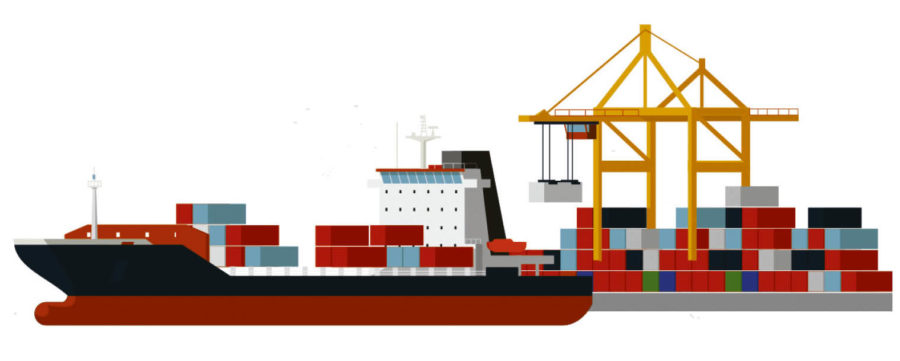With fast-developing emerging markets as well as growth among some established customers, there are more opportunities for global expansion than ever before. But laws, customs, tariffs, political considerations and economic factors vary from one country to the next and they’re constantly changing. Taking all these factors into account, maintaining a seamless, lean and reliable global supply chain presents companies with an enormous challenge.
“Our world is increasingly connected by digital and physical networks,” says Jeroen Eijsink, European president at C.H. Robinson, a third-party logistics provider (3PL) that helps companies to simplify their global supply chains. “But there are still significant political, economic and cultural differences between territories, on top of which we live in a fast-changing, unpredictable global environment. This means companies have to be able to adapt to change quickly and efficiently in order to manage every aspect of their supply chain.”
This is why, he argues, global transport operators require a robust single global technology platform and reporting tools, which can handle the various interactions that comprise global supply chains. By working closely with a 3PL that has global reach and state-of-the-art technology, organisations have access to transportation management systems (TMS), which automate day-to-day processes, providing them with greater efficiencies in their supply chains as well as greater levels of optimisation.
C.H. Robinson’s single global TMS, Navisphere®, is available through licensing agreements or cloud computing. “It can provide shippers with global visibility into the details of every shipment,” explains Mr Eijsink. “It can help manage bids for any method of transport, anywhere in the world and co-ordinate contracts, procurement, rates, tenders and schedules. If a TMS is used effectively it can identify and tackle inefficiencies.”
Alongside a TMS, what else should companies be doing to ensure their supply chains can support their global expansion plans? Mr Eijsink advises them to ensure letters of credit, tariffs, terms of sale and all financial documentation are in order to avoid profit-killing delays in buying, selling and sourcing. They should also adopt an integrated, co-ordinated workflow approach as well as making sure they use automated systems to comply with all security and regulatory requirements.
Companies have to be able to adapt to change quickly and efficiently in order to manage every aspect of their supply chain
“Real-time, dynamic routing means you can make decisions quickly to take into account any number of different challenges as they arise,” says Mr Eijsink “For example, the most efficient route in December may not be the same in January, once bad weather, political instability, fuel prices, capacity or any number of other factors come into play.”
In today’s uncertain world where regulations are increasingly stringent, managing risk is essential. Questions can arise about who is responsible for predicting, tracking and resolving disruptions, and for understanding international commercial terms (Incoterms®) and associated risks around contracts, liability and insurance. Awareness of risks and then clear accountability at the relevant level of the supply chain for handling them is essential.
“A risk management plan should include a visual map of all transportation routes, with identified risks called out as ‘hot spots’, plus detailed score cards for evaluating both in-house and contracted supply chain providers,” says Mr Eijsink. “These score cards will help everyone understand which capabilities and responsibilities are most critical.”
He points out that globalisation is driving transport to play a more prominent role in all organisations. “Enterprises and organisations that put a strong emphasis on growth and source from around the world will face a continuing challenge in the form of the added cost, complexity and risk that comes with moving raw materials or finished products across multiple borders,” he says.
“Global transport and supply chain management is no longer an in-house operation. By working closely with a trusted 3PL to develop systems, strategies, processes and insights that make efficient use of both time and space, organisations can increase their competitiveness in the global marketplace.”
CASE STUDY: Cheers to a logistics expert
A US beverage producer looking to grow in Europe sourced a co-manufacturer in the Netherlands and embarked on its expansion plan. However, it faced challenges in the form of surges in demand, seasonal variations and trade-lane density. Identifying a carrier base and developing market pricing also presented problems, as did regulatory compliance.
The company chose C.H. Robinson because it realised a third-party logistics provider (3PL) typically enjoys greater scale than many carriers and asset owners. 3PLs can also connect with smaller and medium-niche carriers, which can reduce costs. On the other hand, as a 3PL, C.H. Robinson has coverage across a number of different markets, creating a seamless supply chain for the beverage company’s products. It also has the capacity to provide for the company’s requirements as it grows.
As well as reducing risks, a 3PL can allow a client to maintain a lean supply chain structure and react quickly to changes in demand. In this case, C.H. Robinson’s single technology platform Navisphere® enabled its client to access and collect data so it could make smarter decisions.
“Our experience with our beverage client clearly demonstrates the importance of identifying a third-party logistics provider that has proven expertise and then developing a close working relationship with it,” says Jeroen Eijsink, European president at C.H. Robinson.

Five benefits of outsourcing to a third-party logistics provider
- Instantly acquire knowledge of taxes, cultures, currencies, regulations and more
- Gain access to their technology and worldwide relationships
- Obtain information about international commercial terms and negotiating contracts
- Delegate routine tasks that have less impact on your global strategy
- Allow internal staff to focus on strategic issues
For more information please visit www.chrobinson.com
CASE STUDY: Cheers to a logistics expert


